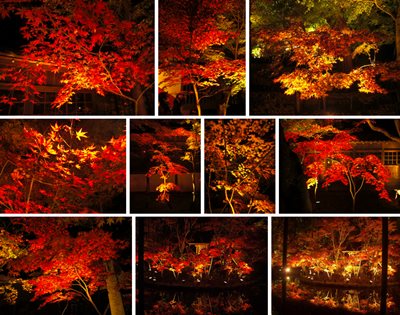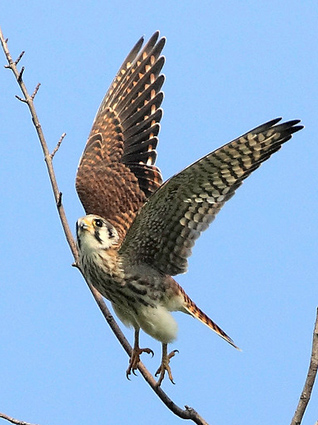Send me a leaf
Send me a leaf, but from a little tree
That grows no nearer your house
Than half an hour away. For then
You will have to walk, you will get strong and I
Shall thank you for the pretty leaf.
—Bertolt Brecht
(Translated, from the German, by David Constantine)
Tonight, tonight. The streets are slicked in rain, smooth like a bathing elephant’s skin. There’s the sweetness of being alive in the wet, the beautiful feeling of washed air magically coupled with the rich wildness of fall colors. Honeyed yellows deepening to red. Marmelade. Occasional veins of magenta. Some chartreuse, even paler than usual in the street lamp glow. Leaves.
Downtown there are ashes everywhere. Not from fires, per se, but the leaves of those street trees are lit in a burning yellow, loosing halos to the earth below. They lay in crowds around the tiny squares of soil surrounded by cement. I love the young things lining sidewalks and medians, dappled in their golden leaflets, but here in my neighborhood I am lucky and rich with ancient oaks and sugar maples instead, all shimmering in chiaroscuro.
The aesthetics of rainy nights never fail to floor me. The shine, the sounds, the solitude. Tonight I walked, wearing heels from a night out, click clacking down one street to another. A skunk was out–my sole companion, glowing white as it browsed one of the area’s larger lawns. It was a quiet, quick, nonchalant creature, not remotely interested in me or a car that sped and splashed by. They die that way, thinking that they can fend off station wagons by spraying them. But this skunk just stayed on the lawn, nibbling in the headlights as I watched under my hood with hands in my pockets. Eventually I turned away, my mind in the night, my heart and soul rinsed in warm weather and beauty.
I’m riding with the trees through transition. Last week I left Allandale Farm, the place where I’ve spent the last three years of my life. In August I’d begun my new position as the horticultural manager at Flora Explora, a landscaping company that deals primarily in Chinatown and Southie properties. It’s a big change, and I’m grateful for it. Leaving the farm and taking up with Flora is giving me the opportunity to learn about botanical entrepreneurialism as well as the space to hone my landscape design skills. And it’s given me a sweeter schedule, one that leaves me feeling more solidly on my feet. I wake up remembering my dreams. I’m alive in phases, in the changing moon and lengthening nights.
This evening as I strolled I stood below a ledge-grown maple whose roots bulged hiphigh. I felt a gnarl and raised my face, my eyes climbing crevices and arms toward the canopy. I listened to the sound of leaves, green but brightening toward yellow. Fallen raindrops fell again to lower leaves and limbs. My eyes were full of light, of the chlorophyll that, come morning, will keep working until it is all shut down and captured within wood til spring’s great bud break. I looked up, my chest full of light, my mind racing with life, rushing with the knowledge of all the ecology seen and unseen before me. My heart felt like the set of Ferngully. I felt like Ferngully. It was magic, and it was a tree, and it was two blocks away, and it is October.










